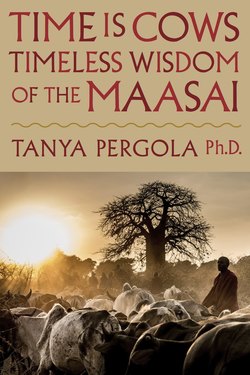Читать книгу Time is Cows: Timeless Wisdom of the Maasai - Tanya Pergola Ph.D. - Страница 10
На сайте Литреса книга снята с продажи.
KEEPING THE FIRE BURNING AT HEARTH AND HOME
ОглавлениеMost of my friends and family were shocked that I actually planned to rent out my lovely home in Seattle and live virtually full-time in East Africa—and I was often surprised by their reactions. We all had spent so much time criticizing the current state of American society and talking about how unsatisfied we were to work longer and longer hours only to make more money to pay for the increasing cost of housing, health care, car maintenance, food, et cetera. I had made the decision to temporarily step off the national treadmill of production and consumption and check out another way of living, to be in a place that was just starting to be influenced by globalization, where people were hungry for American know-how. Didn’t my Seattle friends think the idea was kind of cool?
I was committed, and it certainly seemed easier to close one file and open another, instead of trying to keep two lives going at the same time. Many people who have had a similar urge to expatriate and completely change their lives have sold all their worldly possessions and jumped ship to a new, completely different location. Yet it seemed right for me to be a bit less dramatic. I wanted to explore the landscape between two worlds, two cultures, and discover a bridge connecting them. Instead of the clash of civilizations, I wanted to choreograph the dance. It must have been the romantic Italian in me.
My friends kept the fire burning in my house in the village in Seattle over the years. The upstairs remained my bedroom, bath, and yoga room. When I returned occasionally, we would share the kitchen, dining room, and sitting room. We called it “the village house.” When friends from East Africa came to visit, the doors to the unofficial “Tanzanian Embassy” would swing open and we would provide home-cooked meals of Pacific salmon, nyama choma, Swahili-style roast meat, polenta, an Italian version of ugali, the staple food of East Africa, and Maasai-style chai.
I combined foods and flavors of many regions of Tanzania, knowing the traditional food of the Maasai would not be too satisfying to my tribe in Seattle. I served both Italian and South African wine. And we would share stories—long conversations around the outdoor fire-pit that lasted long into the evening just as they did in Maasailand, stories about politics, economics, and family. I always felt I brought a piece of Africa with me when I returned to America. And I always enjoyed catching up with the current news and trends from the United States to take back with me to my villages in Africa. The Maasai have a word, oloipung’o, which means to travel away from your home and explore another piece of the world and then turn back and share it with your people. I loved the rewards of my oloipung’o experiences, and I shared them on both continents as bridges between the two.
Just prior to the collapse of the real estate market in the United States, I sold the village house in Seattle and downsized to a one bedroom flat in Miami, where the weather better suited my clothes and it was a slightly shorter hop across the pond. I still visit the village in Seattle, share African stories in person there when I can, and stay in close touch via the Internet. My mom now lives in southern California and always has a bed ready for me there. I carry my keys to my American home with me wherever I go, as a Maasai woman does when she sets out on safari. Knowing I have such special nests to fly to makes the whole oloipung’o experience more comfortable, and special.
